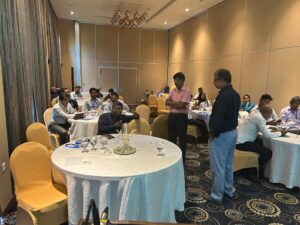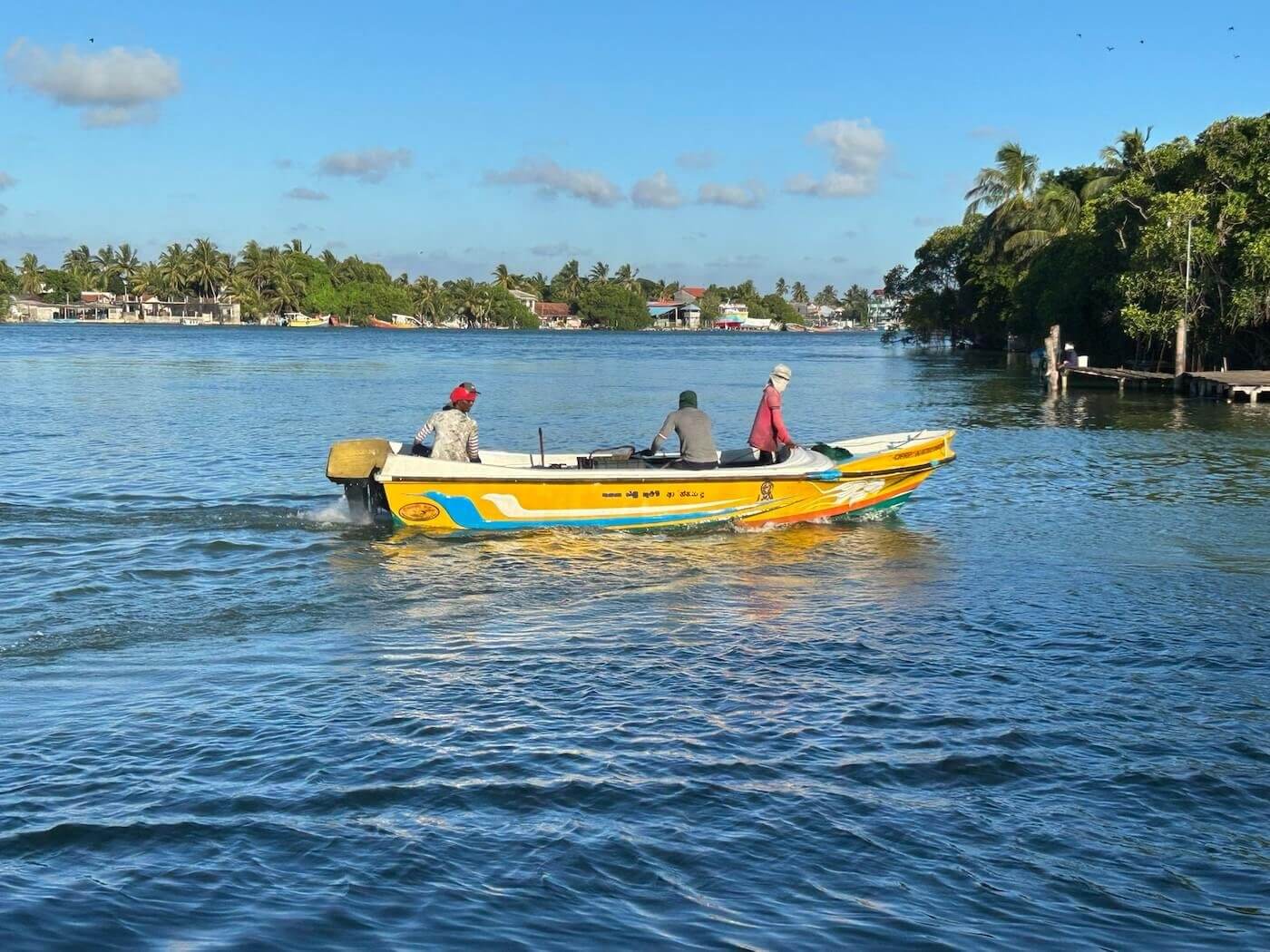
This initiative is part of a regional FAO project entitled implementation of a global project on practical climate change adaptation funded by the Norwegian Agency for Development Cooperation (Norad).
The training was facilitated by Darren Mitchell of FSF and held with 26 participants from the Department of Fisheries and Ocean University, Sri Lanka. There was also input from Rajdeep Mukherjee, of the Bay of Bengal Programme Inter-governmental Organisation (BOBP-IGO) who highlighted to the participants the importance of addressing safety at sea issues in small scale fishing communities across the region.
As per pre-prepared course agendas, participants were taken through ‘Train the Trainer’ introductory material and then given the opportunity to present specialist safety course materials, focusing on key safety risk issues in their respective regional small scale fishing communities.
The overall aim of this initiative is to provide practical training experience to course participants who can then subsequently provide safety training to local fishers in their regions.
The training package used for these courses covered a large range of subjects, such as preparing for emergencies at sea, small boat safety and basic engine maintenance, radio communication, survival at sea, emergency first aid, safety risk management, marine traffic rules, and trainer fundamentals.

Train the Trainer participants discussing course material for their presentations
This training initiative is just one step for Sri Lanka to begin dealing with the issue of safety at sea for small scale and artisanal fishers. The challenge is to now apply knowledge learned within local fishing communities to counter the many safety risks faced by fishers, with the overall aim of reducing harm suffered through injuries, illnesses, fatalities and loss of vessels or equipment at sea. A significant part of this will be assisting and working alongside local fishing communities to raise the awareness of key issues, with the overall aim of promoting a culture of safety at sea.

Sri Lanka fishers heading out in Negombo